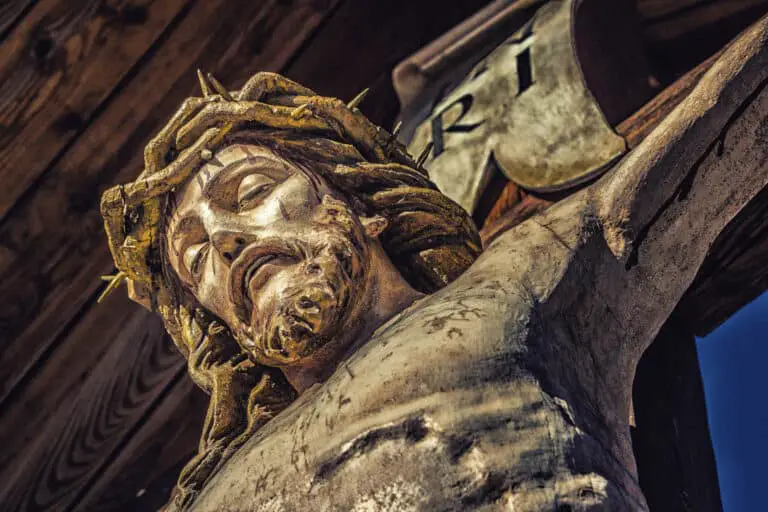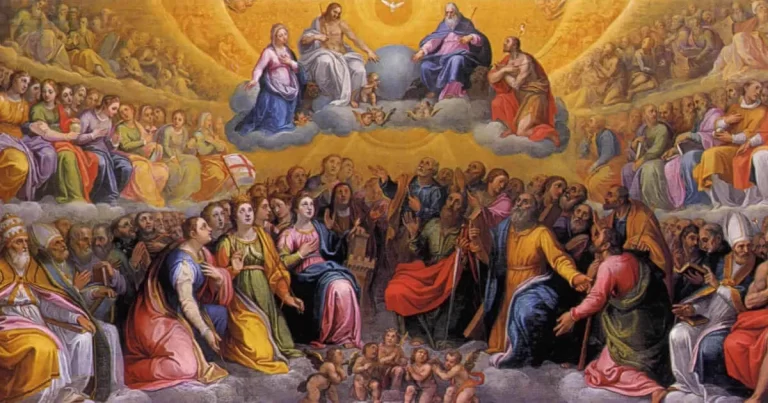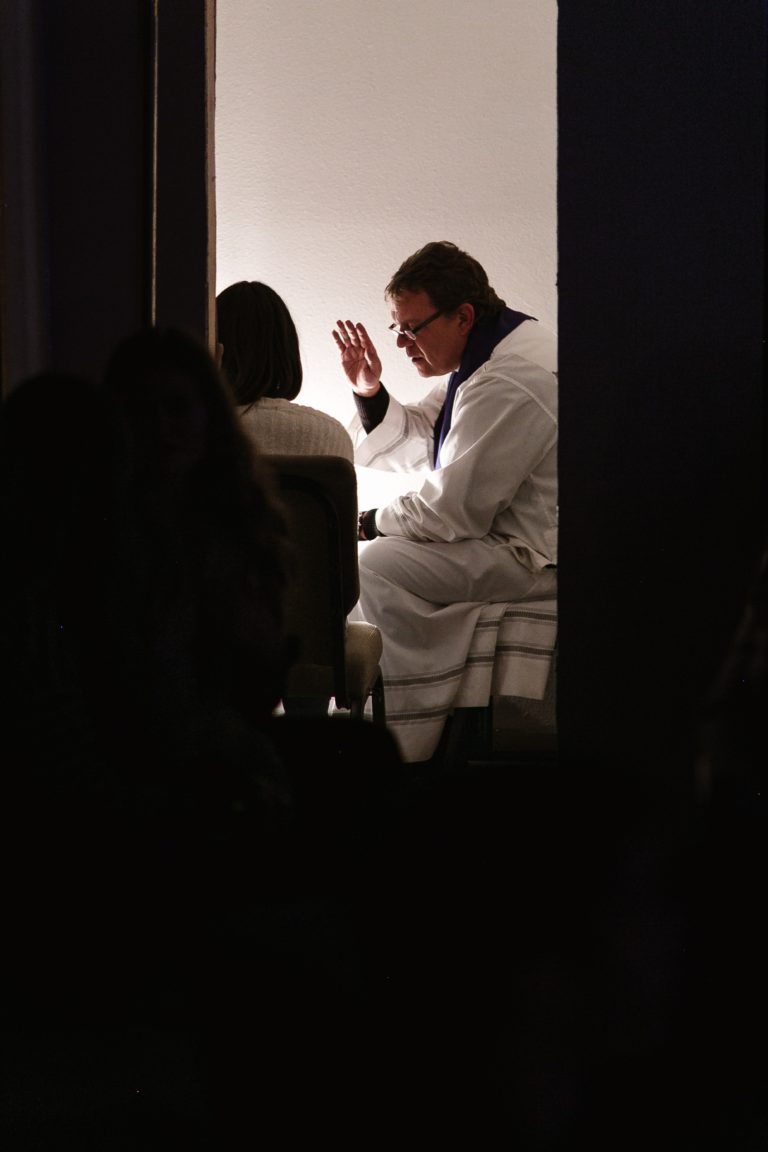Is there a Biblical basis for believing in Purgatory?
The biblical basis for Purgatory is not only supported but is defined as a doctrine throughout the Catholic Church tradition. Should you be looking for the actual word ‘Purgatory’ in the Bible then you will be searching in vain.
The word Purgatory, whilst not appearing in the Bible is implied by Scriptural references. The early Church Fathers from the second century on-wards developed the understanding of Purgatory and is part of the deposit of faith. Whilst the concept of Purgatory is misunderstood by other denominations, it shows the extent that God has extended His hand of Mercy.

What does the word ‘Purgatory’ mean?
The word Purgatory comes from the Medieval Latin purgatorium (noun)“cleansing’ and purgatories (adjective) “purging, cleansing”.
Theologians define the word as the condition of those who have died in the state of grace but with attachments to sin. Purgatory is the temporary place that these souls are cleansed or purified for a time before they enter into their eternal reward, Heaven.
The soul in Purgatory is purged of any un-repented venial sins, pay the price as seen by divine justice for the temporal punishment due to sin and these souls are made ready to enjoy the Beatific Vision.
Is the word Purgatory in the Bible?
The word Purgatory does not appear in the Bible but throughout the Scriptures the notion of Purgatory is implied.
Should you be on the hunt for the word Purgatory in Scripture, well you are going to be disappointed, as there is no reference to the word period. This is problematic for many non-Catholics and is the reason why other Religions have such a difficult time understanding, especially those who see the Bible in the literal sense.
Like the word Purgatory, the words Trinity, Transubstantiation and Assumption amongst some are part of a family of words that express the understanding of related Scripture passages that has assisted in the development of the Catholic faith.
The Doctrine of Purgatory, like the Doctrine of the Holy Trinity were developed over time.
Without this place and state of purification, who can be saved?
This question was posited to Our Lord in Mark’s Gospel Chapter 10 following Jesus’ response to the rich young man who could not give up his riches, Jesus said “how hard it is for them that trust in riches to enter into the kingdom of God”
But who can be saved?
To which our Lord replied:
“With men it is impossible, but not with God: for all things are possible with God.”
The two passages most clearly related are
2 Maccabees 12:43-46 and 1 Corinthians 3:12–15.
“And making a gathering, he sent twelve thousand drachmas of silver to Jerusalem for sacrifice to be offered for the sins of the dead, thinking well and religiously concerning the resurrection. (For if he had not hoped that they that were slain should rise again, it would have seemed superfluous and vain to pray for the dead.) And because he considered that they who had fallen asleep with godliness, had great grace laid up for them. It is therefore a holy and wholesome thought to pray for the dead, that they may be loosed from sins” ( 2 Maccabees 12:43–46).
St Paul discusses the Lord’s scrutiny of our works on the Day of Judgment.
Here it is said that each person’s works will be tested.
“Now, if any man build upon this foundation, gold, silver, precious stones, wood, hay, stubble: Every man’s work shall be manifest. For the day of the Lord shall declare it, because it shall be revealed in fire. And the fire shall try every man’s work, of what sort it is. If any man’s work abide, which he hath built thereupon, he shall receive a reward. If any man’s work burn, he shall suffer loss: but he himself shall be saved, yet so as by fire” (1 Corinthians 3:12–15).
In can be deduced from this text that even persons who are saved, if their deeds in life are shady and imperfect, will pass through a fiery process of suffering on the way to glory.
What is this fire?
Origen, St Ambrose and St Basil all are in agreement that this is the fire what every soul must go through on its way to Heaven – to purge their impurities away.
This is ratified at the Council of Florence (15th Century) and Council of Trent (16th Century), and by the Latin and Greek fathers.
This is a Doctrine of the faith – The Doctrine of Purgatory
Our Lord asks us to
“Be you perfect, as also your Heavenly Father is perfect” (Matthew 5:48)
Again in Revelation 21:27:
“There shall not enter into any thing defiled or that worketh abomination or maketh a lie, but they that are written in the book of life of the Lamb”
A third passage often quoted is from St Matthew 12:32, which says:
“And whosoever shall speak a word against the Son of man, it shall be forgiven him: but he that shall speak against the Holy Spirit, it shall not be forgiven him neither in this world, nor in the world to come.”
Saint Gregory the Great explains this passage to mean:
“As for certain lesser faults, we must believe that, before the Final Judgment, there is a purifying fire. He who is truth says that whoever utters blasphemy against the Holy Spirit will be pardoned neither in this age nor in the age to come. From this sentence we understand that certain offenses can be forgiven in this age, but certain others in the age to come” (Dialogues 4.39; cf. Saint John Chrysostom, Hom. 1 Cor 3.15; Saint Gregory of Nyssa, De iis qui in fide dormiunt) (CCC 1030–32, 1472).
The quote from St Matthew 12:32 on “the sin against the Holy Spirit that can not be forgiven neither in this life nor in the next” implies that there are sins that are forgiven in the next life. How can this be since our fate is sealed at the moment of our death and as we enter into the afterlife? Isn’t it true that we either enter into Heaven or Hell? The answer is true, eventually we will either be in Heaven or in Hell. However the existence of a place of purification and purging is this mechanism in the afterlife that fosters the forgiveness of sins and is what Catholics call Purgatory.
What is the sin that cannot be forgiven against the Holy Spirit?
St Hilary say it is the sin of denying that Christ is God – taking away His Eternal Substance. As God came into Man, man shall in turn come to God.
St Ambrose says it is schism, Simony whereby Simon Magus wished to buy the Holy Spirit from St Peter.
Origen says every mortal sin after Baptism.
St Cyprian says every sin against God and denial of faith in persecution.
St Augustine collects six sins – presumption, despair, striving against known truth, envy of fraternal charity, impenitence, obstinacy.
For God wills the salvation of all and without Purgatory, many will be lost eternally. God, in His love and infinite Mercy, gave us a means to enter into Heaven should we die in a state not perfect for Heaven.
Praise God for His Mercy and Justice.





